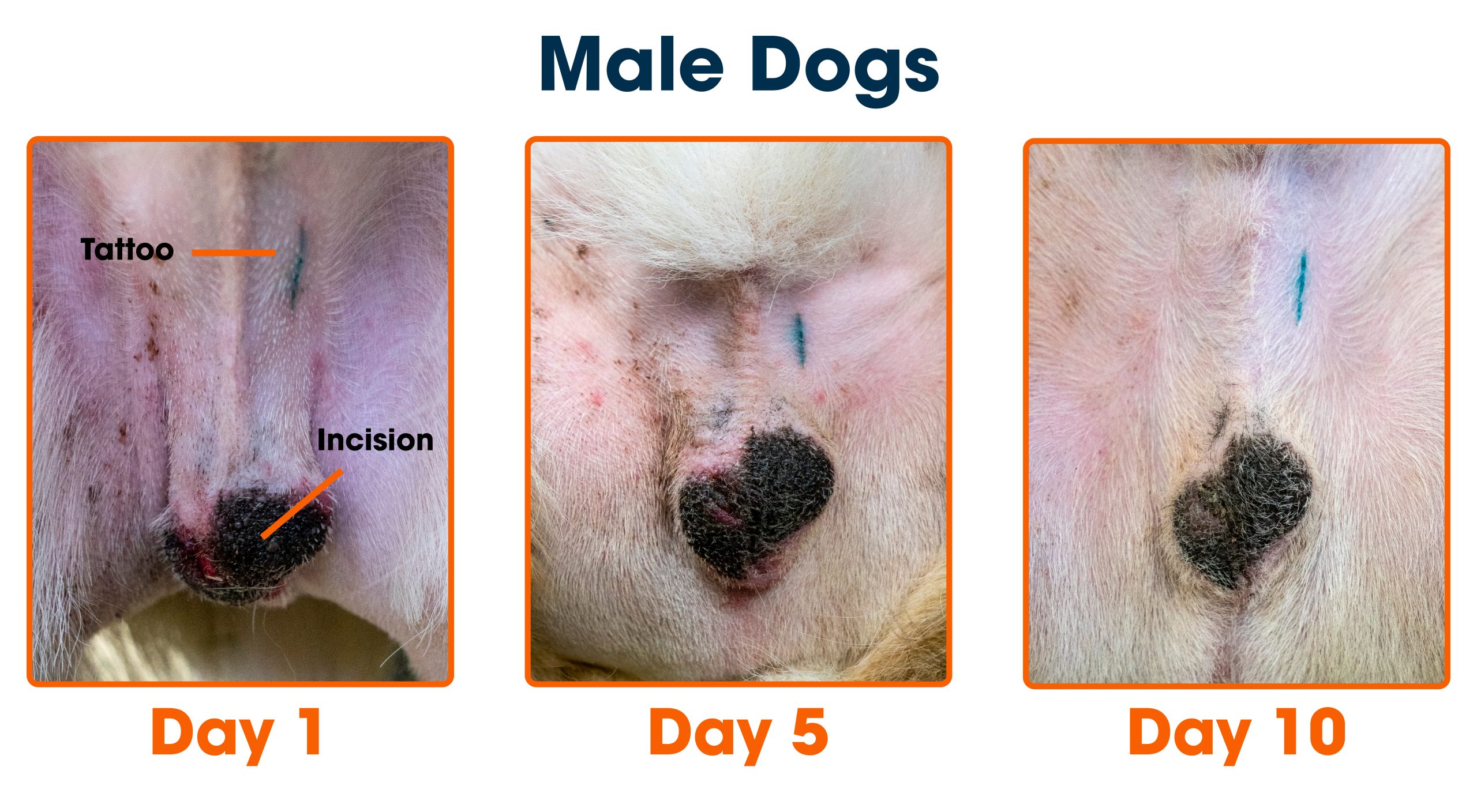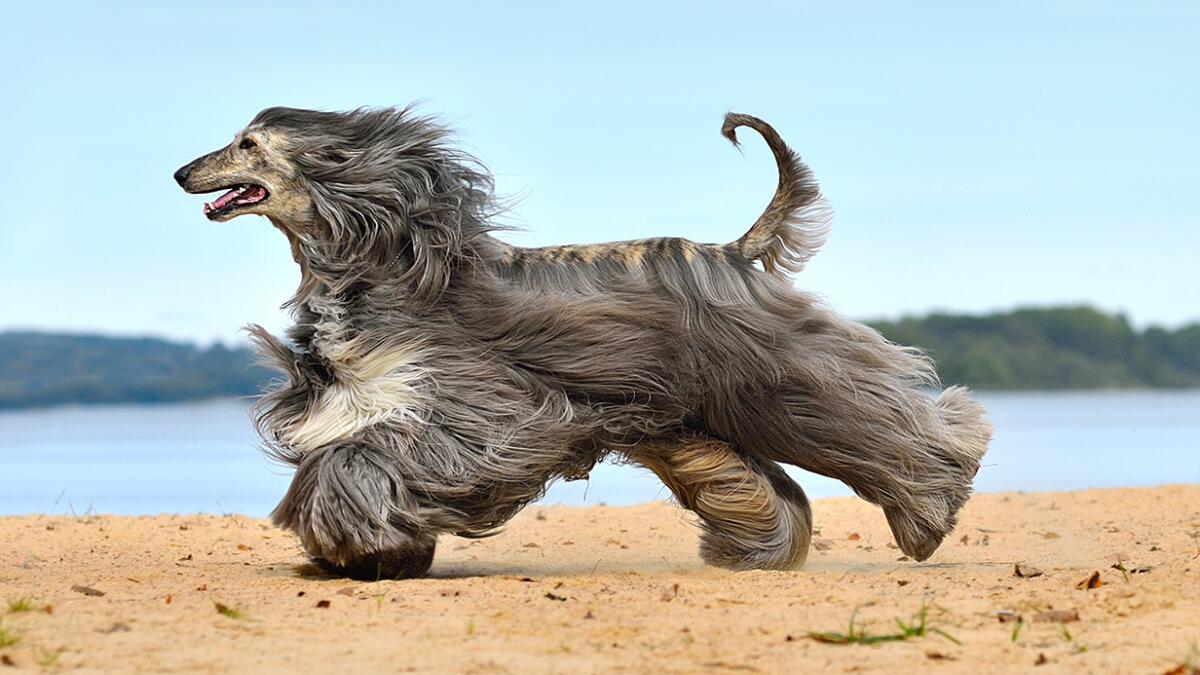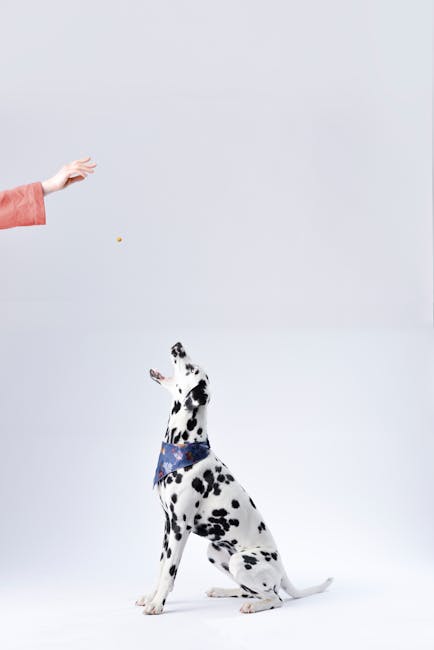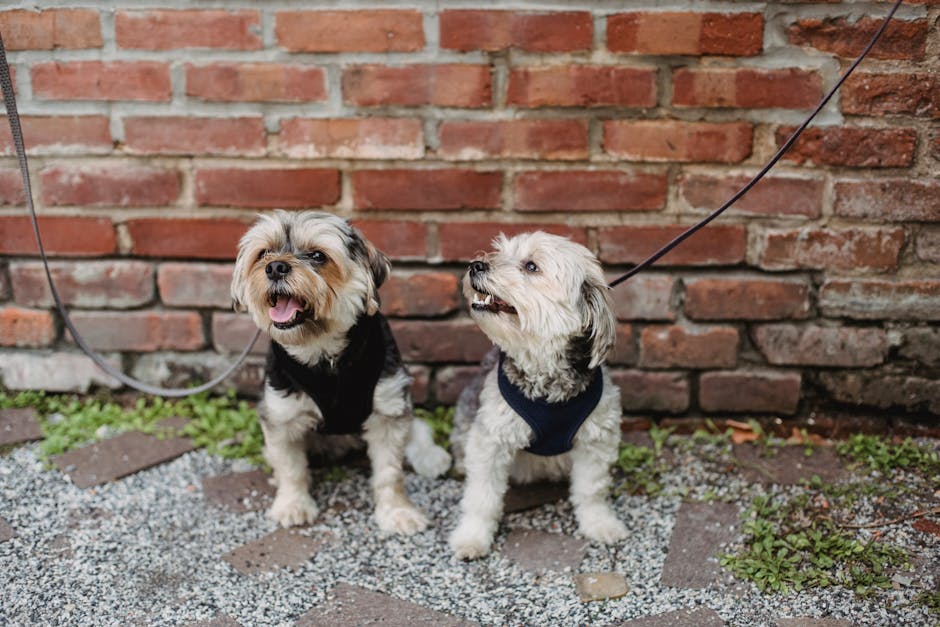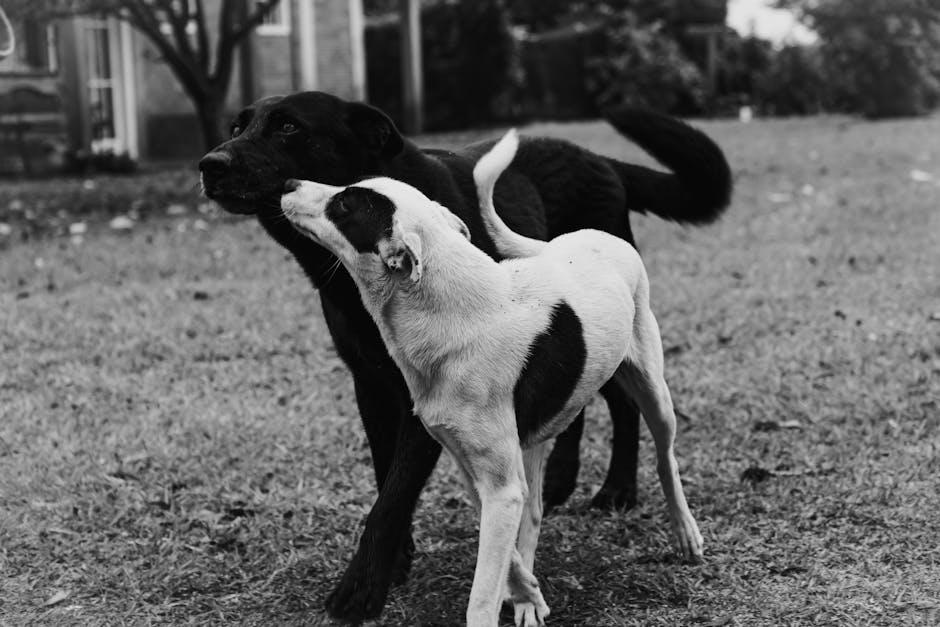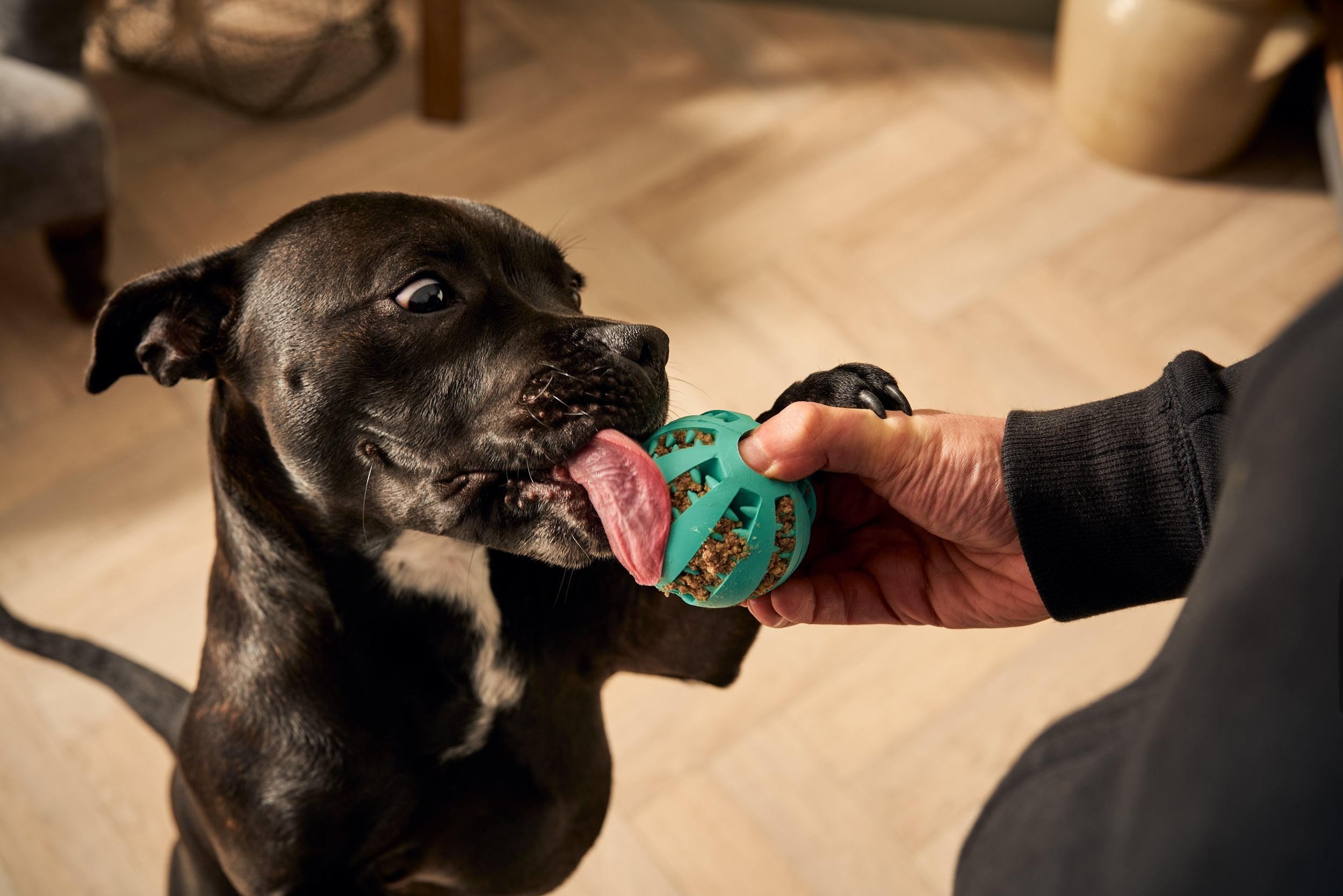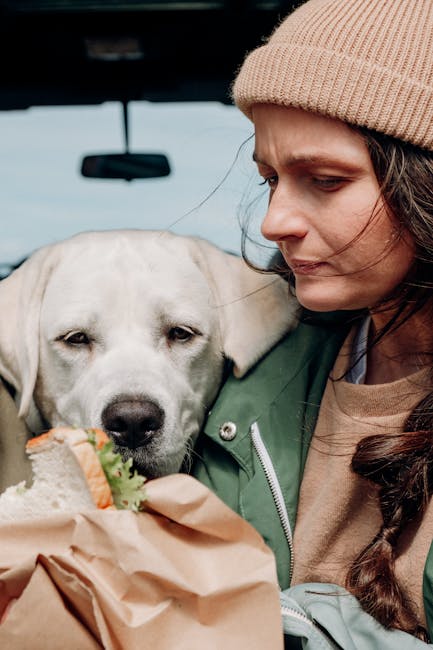Have you ever wondered why your dog’s fur looks shiny and healthy one day, but dull and brittle the next? What if the secret to a beautiful coat isn’t just good grooming, but actually what you’re feeding your furry friend?
The food your dog eats can play a huge role in the health and appearance of their fur. If you want to discover how different types of food affect your dog’s coat, and learn what changes you can make to keep it soft, glossy, and strong, keep reading.
Your dog’s fur might just thank you for it!
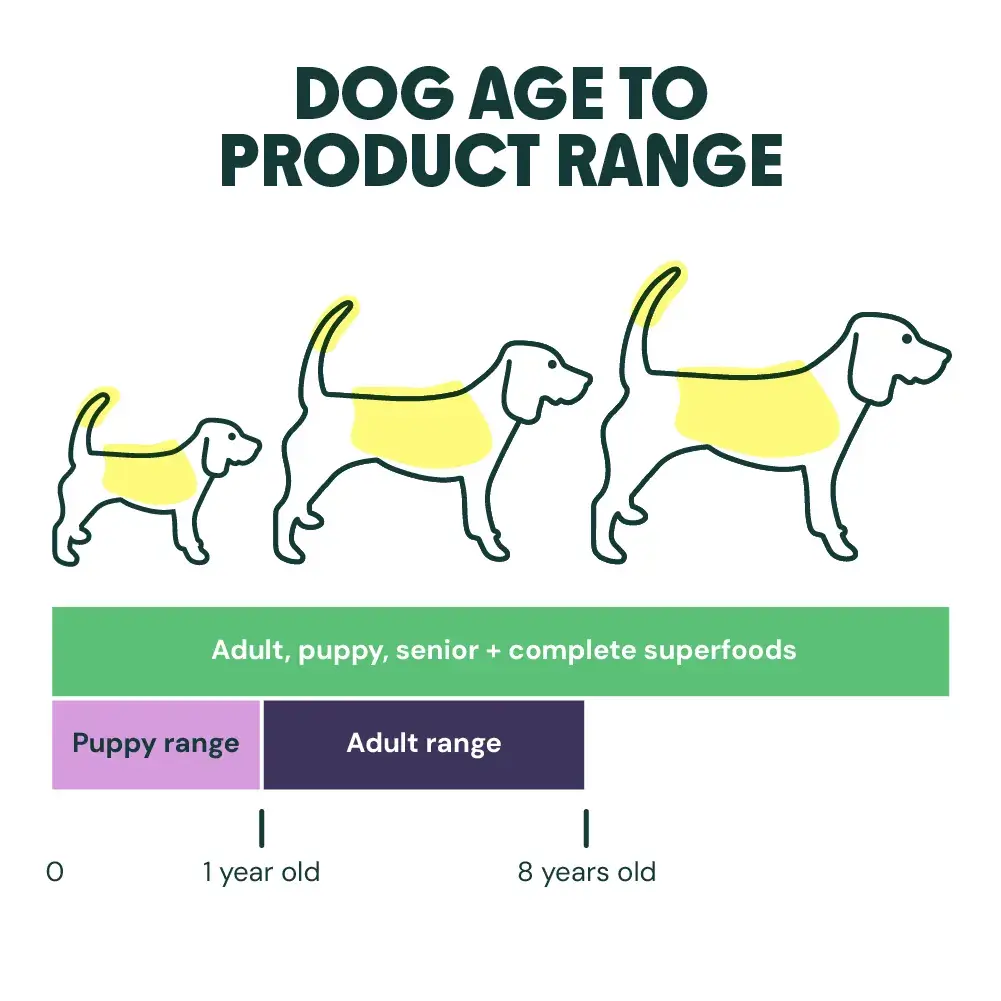
Credit: www.bellaandduke.com
Diet And Dog Fur Health
Your dog’s fur coat often reflects their overall health, and diet plays a crucial role in this. What you feed your dog can directly influence the shine, texture, and strength of their coat. Understanding the connection between nutrition and fur health helps you make better choices for your pet’s diet.
Nutritional Needs
Your dog’s fur depends on specific nutrients to stay healthy. Proteins are essential since they provide the building blocks for hair growth. Without enough protein, your dog’s coat can become dull and thin.
Fatty acids, especially omega-3 and omega-6, are vital for a glossy, soft coat. These fats help reduce itching and inflammation, promoting skin health. Vitamins like A, E, and biotin also support hair strength and shine.
Think about the last time you changed your dog’s food—did you notice any difference in their fur? Sometimes small adjustments, like adding fish oil, can make a big difference in coat quality.
Impact Of Balanced Diet
A balanced diet keeps your dog’s fur in top shape. It’s not just about individual nutrients but how they work together. Feeding a variety of wholesome foods ensures your dog gets everything needed for healthy fur and skin.
Commercial dog foods often meet these needs, but homemade diets require careful planning. Too much or too little of certain nutrients can cause shedding or dry skin. Watching your dog’s fur closely can give you clues about their diet’s effectiveness.
Have you ever noticed your dog scratching more or losing fur after switching foods? That might signal an imbalance. Adjusting their diet thoughtfully can improve these issues and boost their coat’s appearance over time.
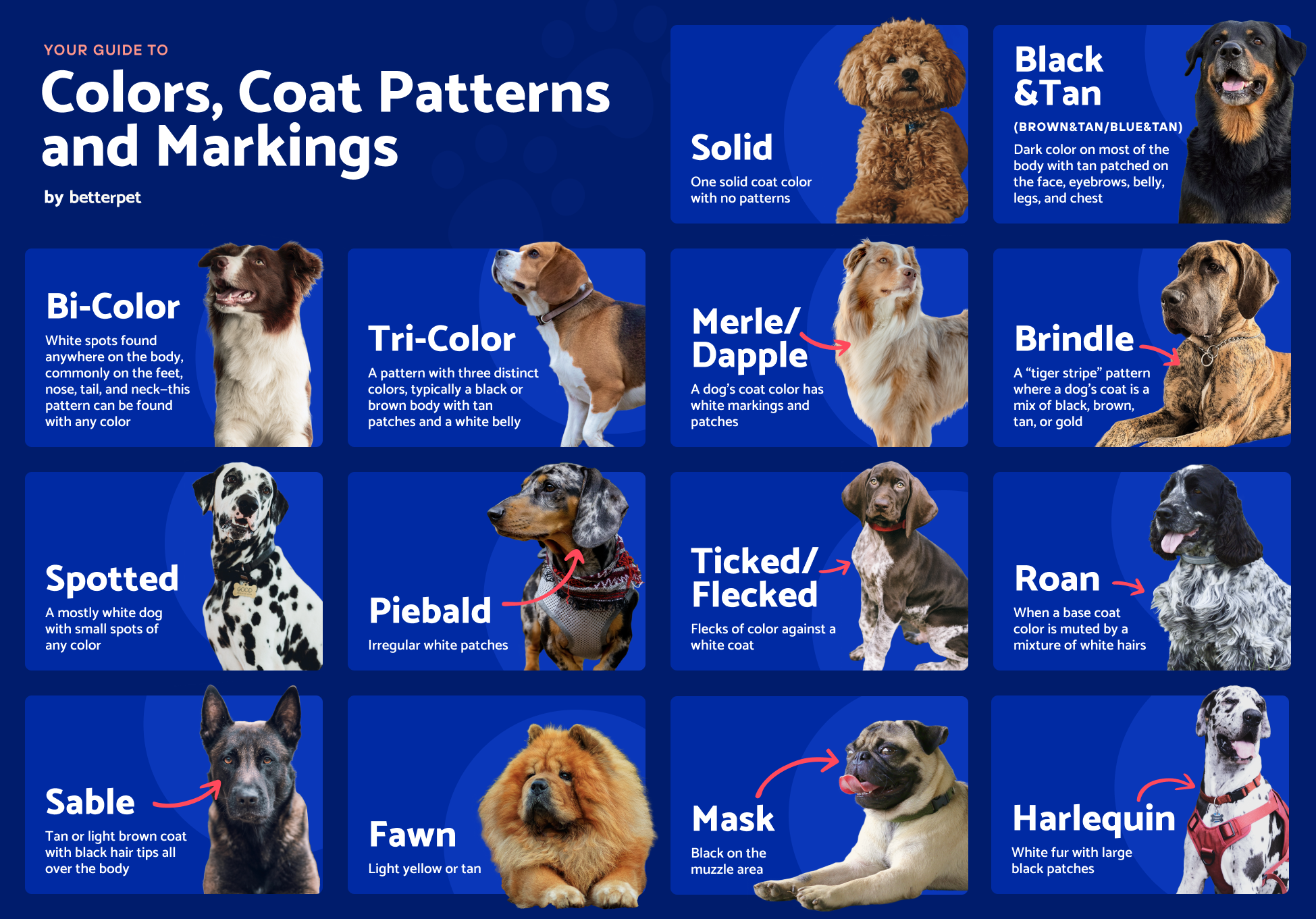
Credit: medium.com
Protein And Fur Quality
Protein plays a crucial role in maintaining your dog’s fur coat. It provides the building blocks needed for strong, healthy hair follicles. Without enough protein, your dog’s coat can become dull, brittle, and prone to shedding.
Importance Of Protein
Your dog’s fur is made mostly of keratin, a type of protein. This means that sufficient protein intake directly affects the quality and growth of their coat. If you notice your dog’s fur losing its shine or becoming patchy, it might be a sign their diet lacks enough protein.
Protein also supports overall skin health, reducing dryness and irritation that can affect fur quality. Have you ever seen a dog scratching more than usual? Often, poor protein nutrition is a hidden cause behind skin problems and dull fur.
Sources Of High-quality Protein
Not all proteins are created equal. High-quality protein sources contain all essential amino acids your dog needs to maintain a vibrant coat.
- Chicken:Easily digestible and rich in essential amino acids.
- Fish:Provides omega-3 fatty acids along with protein, which boosts fur shine.
- Lamb:A great option for dogs with food sensitivities, offering complete protein.
- Eggs:Packed with protein and biotin, supporting hair growth.
Pay attention to your dog’s reactions when you switch protein sources. Some dogs respond better to one type, showing improved coat texture and shine. What protein source has worked best for your dog’s fur health?
Fats And Fur Shine
The condition of your dog’s fur coat says a lot about their overall health, and fats play a crucial role in this. Not all fats are created equal, and the right ones can bring a noticeable shine and softness to your dog’s coat. Have you ever noticed how some dogs seem to glow with a healthy sheen, while others look dull? The difference often lies in their diet, especially the fats they consume.
Essential Fatty Acids
Essential fatty acids (EFAs) are fats your dog’s body can’t make on its own, so they must come from food. These include omega-3 and omega-6 fatty acids. They help keep your dog’s skin hydrated and their fur smooth, reducing itchiness and dryness.
Adding sources like fish oil, flaxseed, and certain plant oils to your dog’s meals can supply these vital nutrients. Have you tried switching your dog’s food to one rich in EFAs and noticed the difference in their coat texture? Many dog owners report a softer, shinier coat after just a few weeks.
Omega-3 And Omega-6 Benefits
Omega-3 fatty acids are known for their anti-inflammatory effects. They can help calm skin irritation and reduce shedding. Common sources include salmon, sardines, and chia seeds.
Omega-6 fatty acids, found in chicken fat, sunflower oil, and corn oil, support skin cell growth and repair. However, balance is key—too much omega-6 without enough omega-3 can cause inflammation.
Consider the ratio of omega-3 to omega-6 in your dog’s diet to maintain a healthy fur coat. Have you checked your dog food’s label for these fats? A well-balanced ratio can make a visible difference in fur shine and health.
Vitamins And Fur Strength
Vitamins play a crucial role in maintaining your dog’s fur strength and overall coat health. They support the skin’s natural barrier and help prevent dryness and breakage. Understanding which vitamins impact fur health can help you choose the right diet for your furry friend.
Role Of Vitamins In Fur Health
Vitamins act as building blocks for healthy fur. They support the production of keratin, the protein that makes up hair, and protect the skin from oxidative damage. Without enough vitamins, your dog’s coat may become dull, brittle, or patchy.
Essential vitamins for fur health include:
- Vitamin A – promotes skin repair and moisture retention
- Vitamin D – supports skin cell growth
- Vitamin E – protects against free radicals and enhances shine
- B-complex vitamins – improve hair follicle function and reduce shedding
Have you noticed your dog’s fur losing its luster after switching foods? It might be time to check if their diet includes these vital nutrients.
Vitamin E And Biotin
Vitamin E is a powerful antioxidant that shields your dog’s skin and fur from damage caused by environmental stressors. It keeps the coat smooth and helps maintain elasticity in the skin.
Biotin, also known as vitamin B7, strengthens hair follicles and encourages new hair growth. It can reduce shedding and prevent fur from becoming thin or fragile.
Many high-quality dog foods now include biotin and vitamin E, but you can also find them as supplements if your dog’s coat looks lackluster. Always consult your vet before adding supplements to ensure the right dosage and avoid overdosing.
Minerals And Fur Growth
Minerals play a vital role in a dog’s fur health and growth. These nutrients support the structure and shine of the coat. A balanced diet with the right minerals helps prevent dullness and hair loss. Understanding key minerals can guide better food choices for your dog’s coat.
Zinc And Copper
Zinc is essential for skin repair and hair growth. It helps keep the coat thick and strong. Dogs lacking zinc may show patchy fur or slow hair growth. Copper supports the color and texture of the fur. It aids in producing melanin, which gives fur its natural color. A diet low in copper can cause fading or graying of the coat.
Calcium And Magnesium
Calcium is important for healthy skin and fur development. It strengthens hair follicles and reduces shedding. Magnesium works with calcium to maintain overall coat health. It helps the body absorb nutrients that support fur growth. Deficiency in these minerals can lead to brittle fur and skin problems.
Hydration And Fur Texture
Hydration plays a crucial role in the health of your dog’s fur coat. Water affects the texture, shine, and overall condition of the fur. When your dog is well-hydrated, their skin stays supple and the fur remains soft and glossy.
Importance Of Water
Water helps to keep your dog’s skin moisturized from the inside out. Without enough water, the skin can become dry and flaky, leading to dull and brittle fur. You might notice your dog’s coat losing its natural luster when they don’t drink enough.
Think about how your own skin feels when you’re dehydrated—it tightens and gets rough. Dogs experience something similar, which directly impacts their fur texture. Ensuring your dog has constant access to clean, fresh water supports not only their overall health but also the quality of their coat.
Signs Of Dehydration
It’s important to recognize if your dog isn’t getting enough water. Common signs include:
- Dry, sticky gums
- Loss of skin elasticity (when you gently pull up the skin, it doesn’t snap back quickly)
- Dull or flaky fur
- Lethargy or lack of energy
If you notice these signs, it’s time to encourage your dog to drink more water and possibly consult a vet. Have you ever checked your dog’s hydration by gently pinching their skin? It’s a simple test that reveals a lot about their hydration status and, by extension, their fur health.
Common Dietary Mistakes
Many dog owners make dietary mistakes that harm their pet’s fur coat. Poor feeding habits can lead to dull, brittle, or patchy fur. Understanding these errors helps improve your dog’s skin and coat health. Avoiding common pitfalls supports a shiny, strong coat that reflects good nutrition.
Overfeeding And Underfeeding
Giving too much food causes obesity and skin problems. Excess weight stresses the body and affects fur quality. Underfeeding leads to nutrient deficiencies. Dogs lack essential vitamins and fats for healthy hair. Both extremes disrupt fur growth and shine.
Balance is key. Feeding the right amount supports optimal coat health. Check your dog’s weight regularly and adjust portions accordingly. Quality nutrition depends on proper quantity as much as content.
Impact Of Low-quality Food
Cheap dog foods often miss important nutrients. Low protein and poor fats cause dull fur and dry skin. Artificial fillers and additives may trigger allergies or irritation. Nutrient-poor diets fail to nourish hair follicles properly.
Choose foods with real meat, omega fatty acids, and vitamins. High-quality ingredients promote thick, glossy coats. Avoid brands with vague labels or excessive fillers. Good food makes visible fur improvements over time.
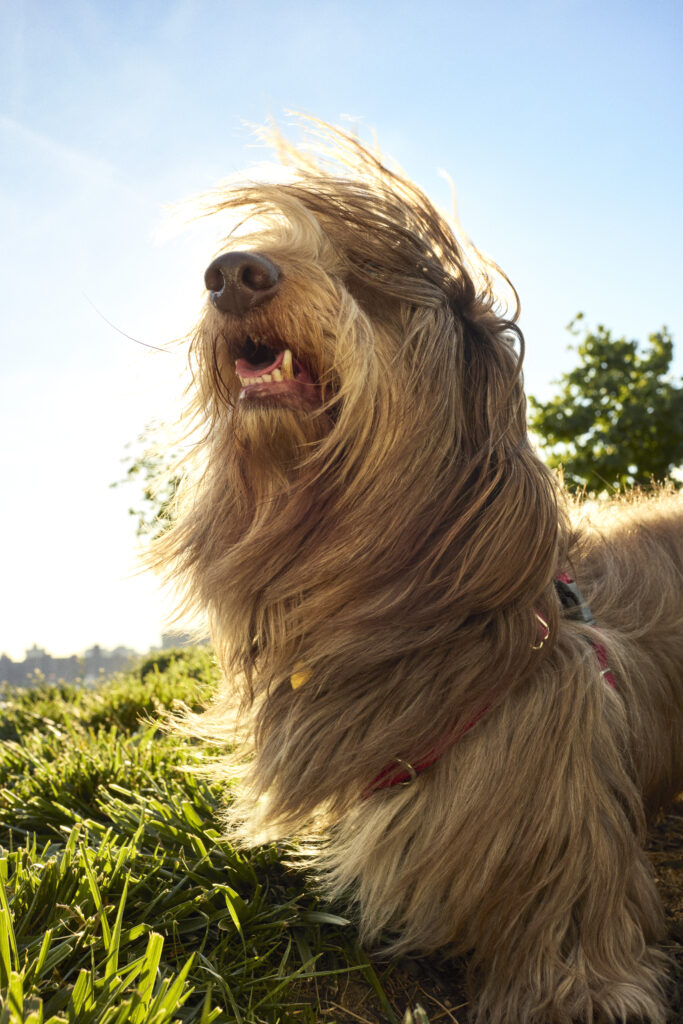
Credit: www.thefarmersdog.com
Special Diets For Fur Issues
Special diets can help improve a dog’s fur health. Certain foods target common fur problems like dryness, dullness, and excessive shedding. Feeding the right nutrients can make a big difference in how a dog’s coat looks and feels. Tailoring a diet to your dog’s specific needs supports healthy skin and fur from the inside out.
Allergy-related Fur Problems
Allergies often cause itching, redness, and fur loss. Dogs can be allergic to ingredients in their food. Common triggers include beef, dairy, wheat, and chicken. An elimination diet helps identify these allergens. This diet removes suspected foods and slowly reintroduces them. Signs improve if allergens are removed. Hypoallergenic dog foods use novel proteins like duck or venison. These proteins reduce allergic reactions and soothe the skin. Omega-3 fatty acids also reduce inflammation and improve coat shine.
Dietary Solutions For Shedding
Shedding is natural but can worsen with poor nutrition. Foods rich in vitamins A and E support skin repair. Biotin and zinc strengthen hair follicles. Adding omega-3 and omega-6 fatty acids reduces shedding and dryness. These nutrients come from fish oils and flaxseed. Feeding balanced, high-quality protein supports new hair growth. Hydration is vital; wet food or fresh water keeps skin moist. Avoid low-quality fillers that may worsen fur health. Consistent diet changes show results in weeks.
Choosing The Right Dog Food
Choosing the right dog food plays a crucial role in maintaining your dog’s fur coat health. The nutrients your dog gets from their food directly impact the shine, softness, and overall condition of their coat. Paying close attention to what’s inside the bag can make a noticeable difference in your pet’s appearance and well-being.
Evaluating Ingredients
Look beyond the flashy packaging and focus on the ingredient list. High-quality proteins like chicken, fish, or lamb should be near the top. These proteins provide the building blocks for healthy fur growth.
Fat sources matter too. Omega-3 and omega-6 fatty acids, often found in fish oil or flaxseed, help reduce dryness and itching. Avoid foods with excessive fillers such as corn, soy, or wheat, as they offer little nutritional value and might cause allergies.
Think about whether the dog food includes vitamins like vitamin E and biotin, which support skin and coat health. Have you ever checked if the food has artificial colors or preservatives? These can sometimes trigger skin reactions that dull your dog’s fur.
Consulting With Veterinarians
Your vet knows your dog’s specific needs better than anyone else. They can recommend dog food brands or formulas tailored to your dog’s breed, age, and skin sensitivities. This personalized advice can save you from trial and error.
During a check-up, ask your vet about supplements that might boost your dog’s coat, such as fish oil capsules or special multivitamins. Vets can also identify if your dog’s dull coat is due to a medical issue rather than just diet.
Have you ever noticed your dog’s coat change after switching foods? Sharing these observations with your vet can help them guide you to the best nutrition plan. This teamwork ensures your dog stays healthy inside and out.
Homemade Vs Commercial Dog Food
Choosing between homemade and commercial dog food can directly impact your dog’s fur coat. The nutrients your dog gets affect the shine, strength, and health of their fur. Understanding the benefits and drawbacks of each option helps you make a better choice for your furry friend’s skin and coat.
Pros And Cons Of Homemade Food
Homemade dog food lets you control every ingredient. This can be great if your dog has allergies or sensitivities. You can add fresh vegetables, lean meats, and healthy fats that support a glossy coat.
However, preparing balanced meals can be tricky. Missing essential vitamins or minerals might lead to dull fur or skin problems. Also, homemade food requires time and effort, which not every pet owner can commit to consistently.
Have you noticed how your dog’s fur improved after you started adding omega-3 rich fish to their meals? That’s a clear sign of how diet changes can show up in their coat.
Quality Of Commercial Options
Commercial dog foods come in a wide range of quality. Some brands use high-grade ingredients and include supplements like biotin and zinc that promote healthy fur. These foods offer convenience without sacrificing essential nutrients.
On the downside, lower-quality commercial foods may contain fillers and artificial additives that don’t support skin health. Reading labels carefully can help you avoid these and find options that truly benefit your dog’s coat.
Would your dog’s fur benefit more from the convenience of commercial food or the customization of homemade meals? This choice depends on your dog’s specific needs and your lifestyle.
Frequently Asked Questions
Does Diet Affect A Dog’s Fur Quality?
Yes, a dog’s diet directly impacts fur quality. Nutrients like omega-3, protein, and vitamins promote healthy, shiny coats. Poor nutrition can cause dull, brittle fur and skin issues. Balanced meals support fur growth and overall skin health.
Which Foods Improve A Dog’s Fur Coat?
Foods rich in omega-3 fatty acids, like fish oil, improve fur health. High-quality proteins, eggs, and sweet potatoes also boost coat shine. Vitamins A, E, and biotin in fruits and vegetables help maintain a soft, glossy coat.
Can Food Allergies Change A Dog’s Fur Condition?
Yes, food allergies can cause fur loss, itching, and dullness. Allergic reactions trigger skin inflammation, leading to fur damage. Identifying and eliminating allergens improves fur health and reduces discomfort.
How Quickly Does Diet Affect A Dog’s Fur?
Diet changes can affect a dog’s fur within 4 to 8 weeks. Nutrient-rich food promotes new hair growth and restores shine. Consistent, balanced feeding is essential for long-term fur health.
Conclusion
Different foods can change a dog’s fur coat in many ways. Healthy fats and proteins help keep fur shiny and soft. Poor diets may cause dullness or hair loss. Always choose balanced food with good nutrients for your dog. Watch how your dog’s fur reacts to new diets.
A strong coat shows a happy, healthy pet. Food matters a lot for fur health. Small changes in diet can make a big difference. Keep your dog’s fur looking its best every day.

